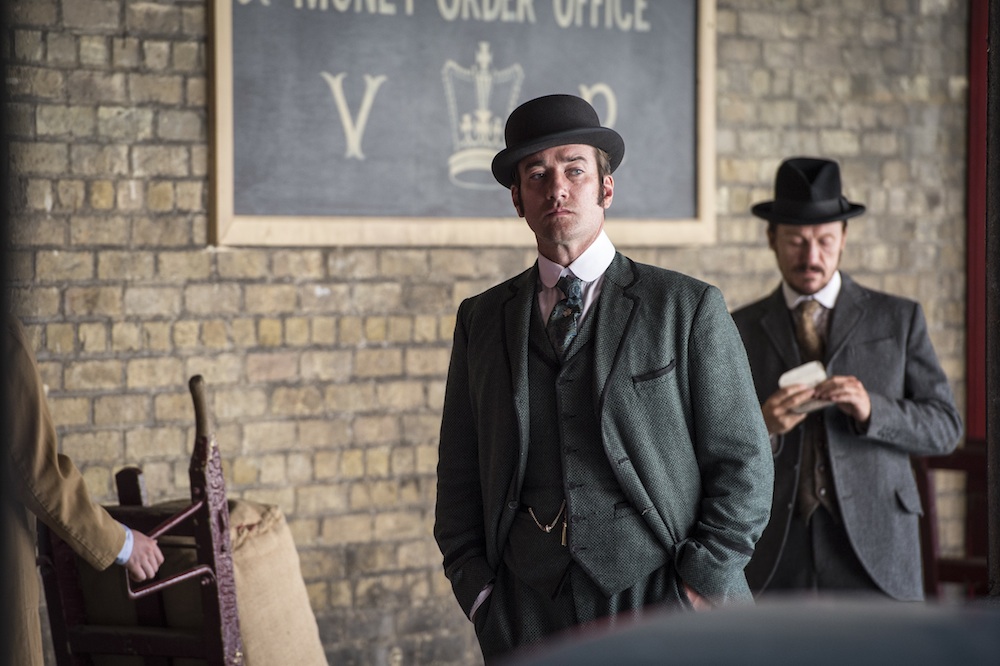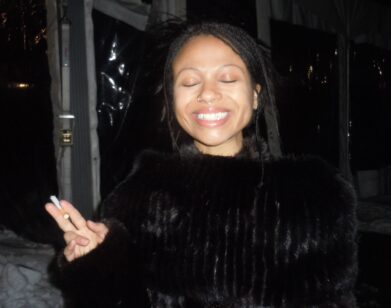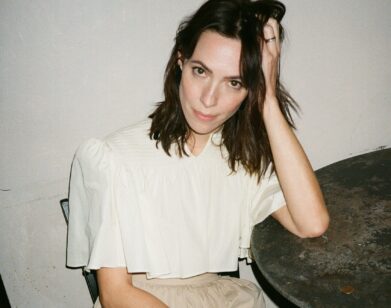Ruling Ripper Street

ABOVE: MATTHEW MACFADYEN (LEFT) AND JERMOE FLYNN IN SEASON TWO OF RIPPER STREET. PHOTO COURTESY OF BBC AMERICA AND © TIGER ASPECT.
In fiction, Victorian London is synonymous with all things seedy: corrupt politicians lording over—or ignoring—an impoverished underworld of drug dens, prostitutes, murderers (both supernatural and natural), and sideshows. This is the London of Sherlock Holmes, Inspector Bucket, Sally Lockhart, and Deputy Inspector Edmund Reid, star of BBC America’s drama Ripper Street. Now in its second season (and with a third confirmed), Ripper Street follows Reid and his two right-hand men—Game of Thrones‘ Jerome Flynn and American Adam Rothenberg—as they uncover the city’s burgeoning heroin trade and the official who support it (Joseph Mawle). Played by Matthew Macfadyen, Reid’s precinct patrols Whitechapel, most famous at the time as the borough of Jack the Ripper.
Macfadyen is certainly a familiar face; now, 39, the actor has appeared in high-profile British films such as Anna Karenina, Pride and Prejudice, Frost/Nixon, and Enigma. We spoke with Macfadyen, who is currently finishing a play in London, over the phone.
EMMA BROWN: I heard that you’re in rehearsals. What are you rehearsing for?
MATTHEW MACFADYEN: I’m not rehearsing for anything. I’m doing a play in the West End [Perfect Nonsense]. I finish in six weeks. It’s a sort of farce about Jeeves and Wooster, the P.G. Wodehouse characters. It’s based on one of their books. It’s good fun.
BROWN: Are you Jeeves or Wooster?
MACFADYEN: I’m Jeeves, among others. There’s only three of us and there’s eight parts or so, so we play lots of parts. There’s a bit of cross-dressing going on.
BROWN: When you’re doing a play, do you feel that you’re better at the end of the run than you were at the beginning?
MACFADYEN: Probably inevitably. If the play’s good and you’ve got a feeling for it and you’re allowed to explore, inevitably it gets a bit richer and more layered. I’m coming towards the end of a run, and it’s slightly different with a comedy—it’s very technical, but the adrenaline that’s there in the beginning is gone. It’s a whole trick in itself to keep things fresh so you’re not being deadened by the repetition. In a comedy you get lots of laughter back, so that’s quite energizing. It’s a weird one; we will have done 198 shows by the end.
BROWN: When’s the last time you forgot your lines?
MACFADYEN: A couple weeks ago, but I recovered quickly.
BROWN: No one noticed?
MACFADYEN: I don’t think so. I actually forgot my lines and laughed, because the guy I’m playing opposite made me laugh, Stephen Mangan. He’s very funny. He’s that guy from Episodes on Showtime. He made me laugh and I forgot my lines. Bastard.
BROWN: Did you know Stephen and the other actor before you signed on for the play?
MACFADYEN: Stephen I did know—he was a year above me at drama school. Mark Hadfield, who’s the other actor, is wonderful. I knew of him, but I hadn’t worked with him before.
BROWN: Have you ever performed a comedic play to a silent house?
MACFADYEN: No, usually they laugh. But it’s funny when you’re doing a comedy, because you’re listening for the audience so much when you’re onstage. Every audience has a completely different character from the night before. We played right through Christmas and, before Christmas, audiences were a little bit ill-tempered, a little grouchy. It was fascinating to see. We realized it was because they had half a mind on their Christmas presents and having to travel somewhere to go and see relatives. They weren’t wholly there listening to the show. As soon as Christmas was done, the audiences went up a notch and sort of relaxed. It was very funny.
BROWN: Did they go back down again after New Year’s?
MACFADYEN: They calmed down a little bit, but they weren’t as ratty as pre-Christmas.
BROWN: Are you’re more connected with the audience when you are doing a comedy than when you do a more serious play?
MACFADYEN: A little bit, because you’re constantly listening to the laughter. You feel like you’re all in a room together. Because of the way this play is set up, there’s no fourth wall—we talk to the audience and give them things at times, give them props.
BROWN: Do you miss the audience when you’re doing television or a film?
MACFADYEN: A little bit. Especially with a comedy, because there’s no response. But I love doing TV and film. It’s nice to go from one to the other. That’s the ideal.
BROWN: The second season of Ripper Street centers around drug smuggling, and the introduction of heroin to Britain from opium. I feel like opium is one of those drugs you only learn about through fiction, because it’s not really relevant today. Do you remember how you first learnt about opium?
MACFADYEN: Probably a Tintin book.
BROWN: There was opium in Tintin?
MACFAYDEN: There was one Tintin story with a sort of Oriental theme [The Blue Lotus]. I remember there was opium going on.
BROWN: Were you more comfortable with your character coming into the second season?
MACFADYEN: It was pretty comfortable in the first season. I think the writing’s so good, it’s just more stuff to get our teeth into, really—great new characters.
BROWN: Are the writers of Ripper Street very secretive, or do you know your character’s arc for the whole season when you start filming?
MACFADYEN: No, you don’t really. Now and again you have an idea of a very loose character arc, I suppose. But even that, not so much. We’d get the scripts a few weeks before the next block and everyone would be sitting around poring over them oohing and ahhing or looking crestfallen.
BROWN: If they get killed off?
MACFADYEN: Yeah, or raped or not so many scenes…
BROWN: Do you have a favorite fictional detective?
MACFADYEN: I love Rebus, which is Ian Rankin’s character. And I loved—he wasn’t a detective, but I loved Smiley, the spy. John le Carré’s character. I think detective fiction is great. It’s sort of looked down a little bit in literary circles, I suppose. But when it’s good, it’s as good as anything.
BROWN: Do you remember your first paid job?
MACFADYEN: My first paid normal job was as a bin man, working for a street cleaning company when I was at drama school. I was trying to earn some money so I could go on holiday with my friends. It wasn’t very glamorous, but it was quite fun. And then my first paid job was a tour with Cheek by Jowl, a theater company.
BROWN: When did you decide that you wanted to become an actor?
MACFADYEN: It was when I was a child. I got more serious in my teenage years and I did lots of plays in schools and I loved it. You realize you can make people laugh, and that’s a lovely feeling. I thought that I was good at it. I thought if I could manage to get away with doing this, and live doing this, I would be very happy. I secretly auditioned for drama school and got in, and that was that.
BROWN: Is there a style of role that you are offered most frequently?
MACFADYEN: Not really. It depends. If you play one type of part on the TV—say you play an unsmiling serious spy, like I did maybe 10 years ago, then you get offered a load of serious parts. You think, “Well, I won’t do those because it’s just what I’ve been doing.” You sit at home for six months until something different comes up, and then that sort of changes people’s perceptions. You try to keep it varied, because people don’t really have any imagination. Actors have to remind people that they can do different things, not just the same thing.
RIPPER STREET AIRS SATURDAYS ON BBC AMERICA AT 9PM. FOR MORE INFORMATION, VISIT THE BBC AMERICA WEBSITE.






